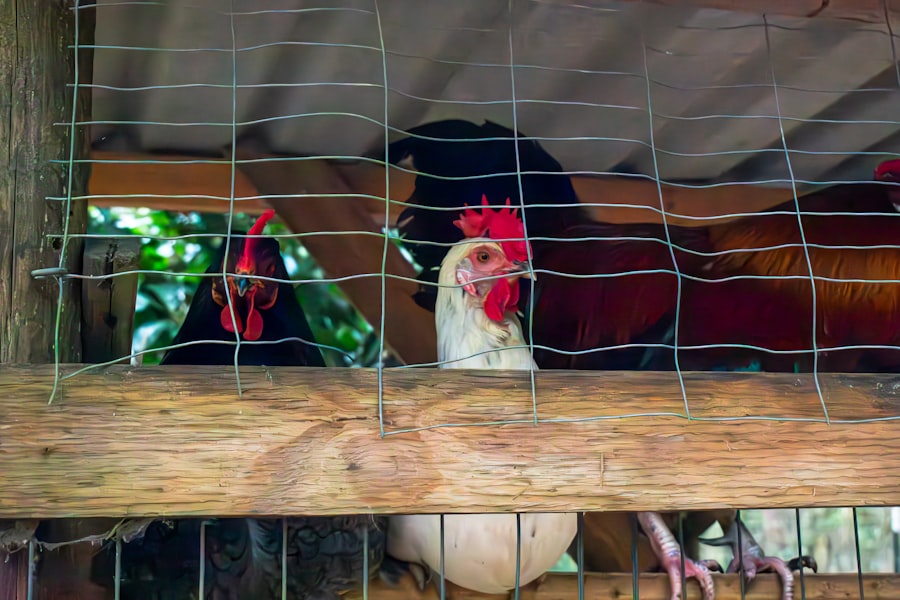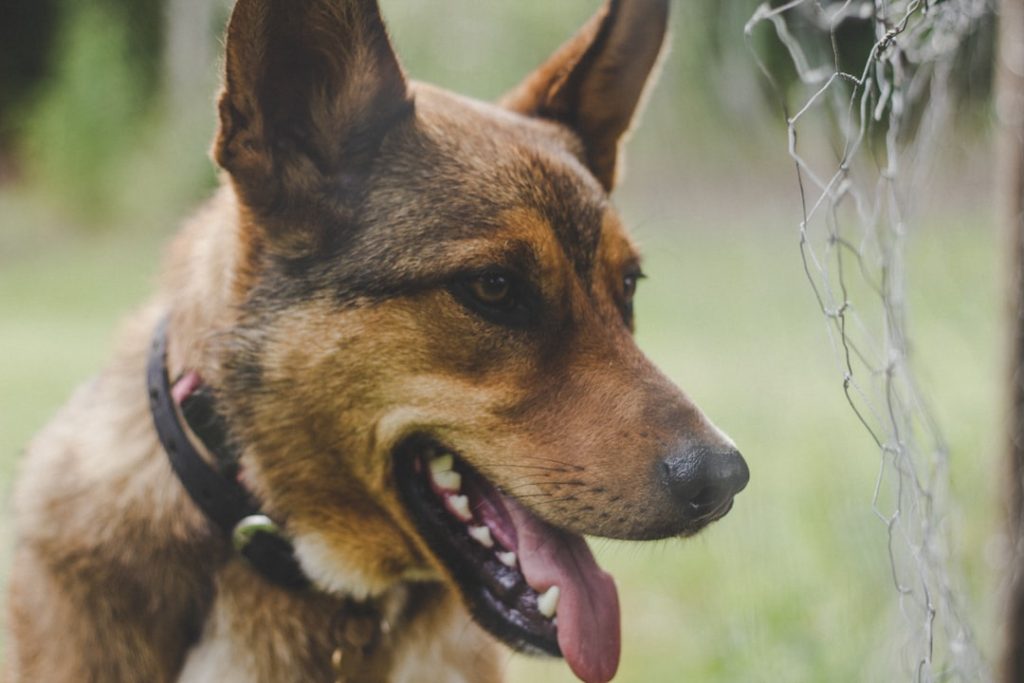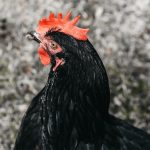Chickens possess a natural ability to fly, which is an integral part of their instinctive behavior. In their natural habitat, chickens utilize flight to evade predators, seek elevated roosting spots, and explore their environment. This innate behavior is essential to their well-being and should be acknowledged by those who keep chickens.
Providing an environment that allows chickens to express their natural behaviors, including flying, is crucial when keeping them in captivity. Chickens are equipped with strong wings that enable them to fly short distances and rapidly gain altitude. Their wings also contribute to their balance and agility, making them proficient fliers within their physical limitations.
It is important to note that wing clipping, a practice used to prevent flight, contradicts chickens’ natural instincts and may lead to stress and discomfort. Instead of suppressing this behavior, it is advisable to develop strategies that safely accommodate their flight instincts while ensuring their well-being. By comprehending and respecting chickens’ innate desire to fly, owners can create a more suitable and enriching environment for their flock.
Table of Contents
- 1 Trimming wings to discourage flight
- 2 Providing adequate space and entertainment
- 3 Installing barriers to prevent escape
- 4 Training and conditioning your chickens
- 5 Supervising free-range time
- 6 Seeking professional advice if necessary
- 7 FAQs
- 7.1 What are some methods to keep chickens from flying over the fence?
- 7.2 How can I clip my chickens’ wings to prevent them from flying over the fence?
- 7.3 What type of netting or wire should I use to cover the top of the chicken enclosure?
- 7.4 What are some ways to provide entertainment and discourage chickens from wanting to fly over the fence?
Key Takeaways
- Chickens have a natural instinct to fly, so it’s important to understand and respect this behavior.
- Trimming wings can help discourage flight and prevent chickens from escaping their enclosure.
- Providing adequate space and entertainment, such as perches and toys, can help keep chickens content and less likely to attempt escape.
- Installing barriers, such as fences or netting, can help prevent chickens from escaping and keep them safe.
- Training and conditioning your chickens through positive reinforcement can help them learn to stay within their designated areas.
- Supervising free-range time can help ensure that chickens stay safe and don’t wander too far from home.
- Seeking professional advice, such as from a veterinarian or experienced chicken keeper, can be helpful in addressing any escape-related issues.
Trimming wings to discourage flight
Wing Trimming: A Safe and Effective Method
One method of managing a chicken’s instinct to fly is by trimming their wings. This involves carefully clipping the primary feathers on one wing to prevent the chicken from achieving lift and flying long distances. It is important to note that wing trimming should be done with caution and precision to avoid causing pain or injury to the chicken.
The Benefits of Wing Trimming
Trimming the wings can help discourage flight and prevent chickens from escaping their enclosure, while still allowing them to exercise their wings and maintain balance. When trimming a chicken’s wings, it is essential to use sharp, clean scissors and to only trim the primary feathers on one wing. This asymmetrical trimming prevents the chicken from achieving lift while still allowing them to maintain balance and maneuverability.
Important Safety Considerations
It is important to trim the feathers carefully and avoid cutting into the blood feathers, as this can cause pain and bleeding. Wing trimming should be done by someone with experience or under the guidance of a professional to ensure the safety and well-being of the chickens. By trimming their wings, chicken owners can manage their flock’s flight instincts in a way that is safe and considerate of their natural behavior.
Providing adequate space and entertainment

Another important aspect of managing a chicken’s instinct to fly is by providing them with adequate space and entertainment. Chickens that are kept in cramped or boring environments are more likely to try to escape in search of stimulation and freedom. By providing a spacious and enriching environment for your chickens, you can help satisfy their natural instincts and reduce the likelihood of flight attempts.
Adequate space allows chickens to move around freely, exercise their wings, and engage in natural behaviors such as scratching, dust bathing, and foraging. Providing a variety of entertainment options, such as perches, toys, and environmental enrichment, can also help keep chickens engaged and content in their environment. By creating a stimulating and spacious living area for your chickens, you can help satisfy their natural instincts and reduce the urge to escape through flight.
Installing barriers to prevent escape
In addition to providing adequate space and entertainment, installing barriers can help prevent chickens from escaping through flight. This can include adding a roof or netting to their outdoor enclosure, reinforcing fences, or creating barriers that limit their ability to gain enough lift for flight. By creating physical barriers that prevent chickens from escaping, you can help manage their flight instincts in a way that is safe and effective.
When installing barriers, it is important to consider the specific needs and behaviors of your flock. For example, some breeds of chickens are more adept at flying than others, so it may be necessary to tailor your barriers to suit the abilities of your particular flock. Additionally, it is important to regularly inspect and maintain barriers to ensure they remain effective at preventing escape attempts.
By installing barriers that are tailored to your flock’s needs, you can help manage their flight instincts in a way that is secure and sustainable.
Training and conditioning your chickens
Training and conditioning your chickens can also help manage their instinct to fly in a safe and positive way. By using positive reinforcement techniques, such as treats and praise, you can teach your chickens to respond to cues and commands that discourage flight. For example, you can train your chickens to come when called or to stay within a certain area by rewarding them for following these commands.
It is important to approach training with patience and consistency, as it may take time for your chickens to learn new behaviors. By using gentle and positive training methods, you can help your chickens understand boundaries and expectations without causing stress or fear. Training and conditioning your chickens can help manage their flight instincts in a way that is respectful of their natural behavior while still ensuring their safety and well-being.
Supervising free-range time

Preventing Escape Attempts
When allowing your chickens to free-range, it is crucial to supervise their outdoor time to prevent them from attempting to escape through flight. By keeping a close eye on your flock while they are outside, you can intervene if they show signs of trying to fly over barriers or escape their designated area.
Observing Behavior and Making Adjustments
Supervising free-range time also allows you to observe your chickens’ behavior and make adjustments to their environment as needed. This enables you to identify any potential issues and take corrective action to ensure their well-being.
Providing Enrichment and Entertainment
During free-range time, it is essential to provide plenty of enrichment and entertainment to keep your chickens engaged and content in their surroundings. This can include providing access to fresh grass, insects, and other natural elements that encourage natural behaviors such as foraging and exploration.
Seeking professional advice if necessary
If you are struggling to manage your chickens’ flight instincts or are unsure about the best approach for your flock, it may be helpful to seek professional advice. A veterinarian or experienced poultry keeper can provide guidance on managing flight instincts in a way that is safe and considerate of your chickens’ natural behavior. They can also offer advice on wing trimming techniques, environmental enrichment, and other strategies for managing flight instincts.
Professional advice can be especially valuable if you are new to keeping chickens or if you have a particularly challenging flock with strong flight instincts. By seeking professional guidance, you can ensure that you are taking the best approach for managing flight instincts in a way that is safe, effective, and respectful of your chickens’ natural behavior. Professional advice can provide valuable insights and support for managing flight instincts in a way that promotes the well-being of your flock.
In conclusion, understanding and managing a chicken’s instinct to fly is an important aspect of responsible chicken keeping. By recognizing the natural behavior of chickens and providing them with a safe and enriching environment, you can help manage their flight instincts in a way that is respectful of their needs while still ensuring their safety and security. Whether through wing trimming, providing adequate space and entertainment, installing barriers, training and conditioning, supervising free-range time, or seeking professional advice when necessary, there are many strategies for managing flight instincts in a way that promotes the well-being of your flock.
By taking a thoughtful and considerate approach to managing flight instincts, you can create a harmonious and fulfilling environment for your chickens while still respecting their natural behavior.
If you’re looking for more tips on keeping your chickens safe and secure, check out this article on large chicken coop ideas. It offers helpful advice on creating a spacious and comfortable environment for your flock, which can also help prevent them from flying over the fence.
FAQs
What are some methods to keep chickens from flying over the fence?
Some methods to keep chickens from flying over the fence include clipping their wings, using netting or wire over the top of the enclosure, and providing enough space and entertainment within the enclosure to discourage them from wanting to fly out.
How can I clip my chickens’ wings to prevent them from flying over the fence?
To clip a chicken’s wings, you can gently catch the chicken and trim the primary feathers on one wing. This will make it difficult for the chicken to achieve lift and fly over the fence.
What type of netting or wire should I use to cover the top of the chicken enclosure?
You can use poultry netting or hardware cloth to cover the top of the chicken enclosure. Make sure the netting or wire is securely fastened to prevent any gaps that the chickens could escape through.
What are some ways to provide entertainment and discourage chickens from wanting to fly over the fence?
You can provide entertainment for your chickens by adding perches, dust bathing areas, and hanging treats or toys within the enclosure. Additionally, ensuring that the chickens have enough space to roam and forage can also discourage them from wanting to fly over the fence.
Meet Walter, the feathered-friend fanatic of Florida! Nestled in the sunshine state, Walter struts through life with his feathered companions, clucking his way to happiness. With a coop that’s fancier than a five-star hotel, he’s the Don Juan of the chicken world. When he’s not teaching his hens to do the cha-cha, you’ll find him in a heated debate with his prized rooster, Sir Clucks-a-Lot. Walter’s poultry passion is no yolk; he’s the sunny-side-up guy you never knew you needed in your flock of friends!







